42 diagram the plasma membrane and label each component
🔴 Answer: 2 🔴 on a question 3. Diagram the plasma membrane and label each component. - the answers to answer-helper.com Phospholipids. The main fabric of the membrane is composed of two layers of phospholipid molecules, and the polar ends of these molecules (which look like a collection of balls in an artist's rendition of the model) (Figure 2) are in contact with aqueous fluid both inside and outside the cell.Thus, both surfaces of the plasma membrane are hydrophilic ("water loving").
Plasma membranes range from 5-10 nm thick. As a comparison, human red blood cells, visible via light microscopy, are approximately 8 µm thick, or approximately 1,000 times thicker than a plasma membrane. Figure 3.21 The fluid mosaic model of the plasma membrane structure describes the plasma membrane as a fluid combination of phospholipids ...
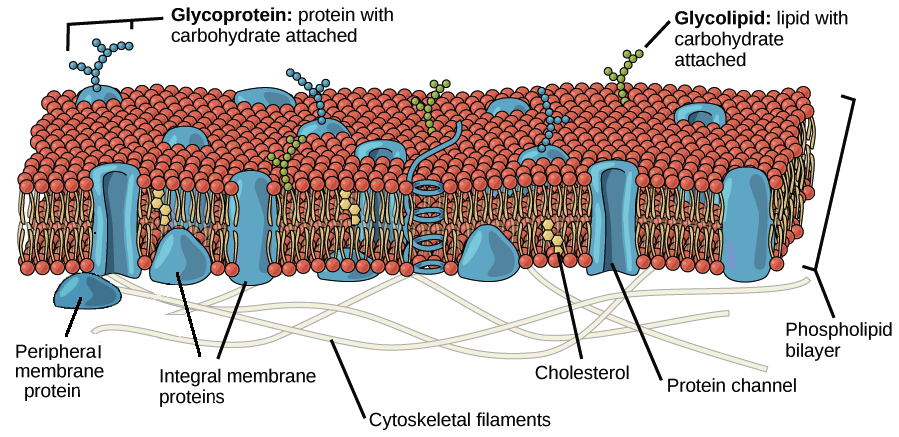
Diagram the plasma membrane and label each component
The principal components of the plasma membrane are lipids ( phospholipids and cholesterol), ... or markers, which allow cells to recognize each other. Label the 4 main parts. Image: Create a diagram of the plasma membrane. Label the 4 main parts. Rating: 3.3 · 3 reviews The principal components of the plasma membrane are lipids (phospholipids and cholesterol), proteins, and carbohydrate groups that are attached to some of the lipids and proteins. A phospholipid is a lipid made of glycerol, two fatty acid tails, and a phosphate-linked head group. Biological membranes usually involve two layers of phospholipids ...
Diagram the plasma membrane and label each component. Aug 14, 2020 — The fluid mosaic model describes the structure of the plasma membrane as a mosaic of components —including phospholipids, cholesterol, proteins, ... The plasma membrane provides structural support to the cell. It tethers the cytoskeleton, which is a network of protein filaments inside the cell that hold all the parts of the cell in place.This gives the cell its shape. Certain organisms such as plants and fungi have a cell wall in addition to the membrane. The cell wall is composed of molecules such as cellulose. The cell membrane is also called the PLASMA membrane and is made of a ... Label the tonicity for each solution (isotonic, hypotonic, or hypertonic):.5 pages The diagram below shows part of a plasma membrane. Which of the label lines points to a structure that could contain a sulfur atom? A 1, 2 and 3 B Only 1 and 2 ... The table below shows four biological molecules and their component elements. Which of the rows, A to D, correctly identifies the elements in each molecule? ...
32 Label The Plasma Membrane. Written By Robert N Greenawalt Thursday, March 25, 2021 Add Comment. Edit. Label the plasma membrane. Plasma Membrane Teaching Resources. Ib Cell Membrane Transport Review 1 3 1 4. Answered 2 Label The Following Diagram Outside Bartleby. The D4h Sterol Bio Sensor Labels The Plasma Membrane In Fission Yeast Download ... Chapter 4: Membrane Structure and Function Plasma Membrane: Thin barrier separating inside of cell (cytoplasm) from outside environment Function: 1) Isolate cell's contents from outside environment 2) Regulate exchange of substances between inside and outside of cell 3) Communicate with other cells Major Components of the Cell Membrane: Membrane Proteins • Membrane proteins are embedded in the fluid matrix of the lipid bilayer • More than 50 types of proteins have been found in the plasma membrane. Membrane proteins determine most of the membrane specific functions • Transport proteins, enzymes and receptor proteins (membrane ... Draw a diagram of such an amphipathic protein embedded in the membrane below and label the polar and nonpolar regions. Some amino acids have nonpolar, ...7 pages
In addition to the various types of lipids that occur in biological membranes, membrane proteins and sugars are also key components of the structure. Membrane proteins play a vital role in biological membranes, as they help to maintain the structural integrity, organization and flow of material through membranes. Diagram the plasma membrane and label each component. Chemical component function. The molecules that make up the plasma membrane have a unique quality that helps to ensure the integrity of the cell. Structure of the plasma membrane. Complete the following table to understand the functions of each component in a plasma membrane. The Phospholipid Bilayer. The plasma membrane is the most thoroughly studied of all cell membranes, and it is largely through investigations of the plasma membrane that our current concepts of membrane structure have evolved. The plasma membranes of mammalian red blood cells (erythrocytes) have been particularly useful as a model for studies of membrane structure. The principal components they identified were lipids and proteins. In 1935, Hugh Davson and James Danielli proposed the plasma membrane's structure. This was the first model that others in the scientific community widely accepted. It was based on the plasma membrane's "railroad track" appearance in early electron micrographs.
determine from the description which cellular structure each phrase is describing. then click and drag each cellular structure into the correct category to indicate whether it is part of the cytoplasm or the cell membrane. ... gelatinous component of the cell cell membrane: ... label the types of plasma membrane lipids.
ENE‑2.B (LO) , ENE‑2.B.1 (EK) Transcript. The fluid mosaic model describes the cell membrane as a tapestry of several types of molecules (phospholipids, cholesterols, and proteins) that are constantly moving. This movement helps the cell membrane maintain its role as a barrier between the inside and outside of the cell environments.
3.3 Bacterial Plasma Membranes 1. Describe the fluid mosaic model of membrane structure and identify the types of lipids typically found in bacterial membranes. 2. Distinguish macroelements (macronutrients) from micronutrients (trace elements) and provide examples of each. 3. Provide examples of growth factors needed by some microorganisms. 4.
Show you the Diagram of the plasma membrane with label on each component each component? Wiki User. ∙ 2012-09-18 00:44:41. Study now. See Answer. Best Answer. Copy.
Describe the molecular components that make up the cell membrane ... different types of passive transport with active transport, providing examples of each.
The model describes plasma membrane structure as a mosaic of components which includes proteins, cholesterol, phospholipids, and carbohydrates; it imparts a fluid character on the membrane. Thickness of the membrane is in the range 5-10nm. The proportion of constituency of plasma membrane i.e., the carbohydrates, lipids and proteins vary from ...
Biology, 21.09.2021 03:30, 123333333545 3. Diagram the plasma membrane and label each component.
Plasma membranes range from 5 to 10 nm in thickness. Diagram the plasma membrane and label each component. The fluid mosaic model of the plasma membrane. Protein lipid and carbohydrate components of the membrane. The cell membrane plasma membrane is a thin semi permeable membrane that surrounds the cytoplasm of a cell.
We are pleased to provide you with the picture named Cell Membrane Diagram.We hope this picture Cell Membrane Diagram can help you study and research. for more anatomy content please follow us and visit our website: www.anatomynote.com. Anatomynote.com found Cell Membrane Diagram from plenty of anatomical pictures on the internet.We think this is the most useful anatomy picture that you need.
Q. Label the components shown in the diagram below using the wordbank below they are not all be shown) and briefly describe the function of each component. (4 points) STEP 2 STEP 1 STEP 3 Clathrin Adapter proteins Phosphoinositides BAR-domain proteins Dynamin Rab Proteins SNARE Proteins Cargo Q. A schematic drawing of the secretory and ...
The component and structure of the phospholipid bilayer and the plasma membrane in general had proven to be a fruitful endeavor to explore. Although some known facts are subject to further scrutiny or falsification in the future, the idea remains that these components play major roles for the survival of the cell.

Draw And Label A Simple Line Diagram Of A Cell Membrane Include The Major Types Of Membrane Proteins On Your Diagram Also Indicate How The Following Pass Through The Cell Membrane Oxygen
The _____ _____ model describes the structure and behavior of the plasma membrane. Fluid mosaic model. transmembrane proteins. integral proteins that span the entire width of the plasma membrane. Although polar, _____ molecules are small enough to pass through the plasma membrane. ...
Describe and draw the structure of the cell membrane/plasma membrane. Label and describe the functions of the proteins, carbohydrates and cholesterol. - 11452156
Membrane potential of about 70 mv across the membrane as indicated in the simple diagram in figure 55. The oligosaccharide side chains of glycolipids are exclusively found on the outer plasma membrane surface together with the oligosaccharides of glycoproteins and form the glycocalyx cf.
The cell membrane (plasma membrane) is a thin semi-permeable membrane that surrounds the cytoplasm of a cell. Its function is to protect the integrity of the interior of the cell by allowing certain substances into the cell while keeping other substances out. It also serves as a base of attachment for the cytoskeleton in some organisms and the ...
Plasma Membrane Functions: By definition, biological membranes are types of membranes that serve as a semi-permeable barrier within living things.Biological membranes are made up two components: phosphate groups and lipids, hence, phospholipid. But despite having these similar components, each still possesses distinct characteristics like the presence of a unique set of proteins, or different ...
Plasma membrane can be defined as a biological membrane or an outer membrane of a cell which is composed of two layers of phospholipids and embedded with proteins. Show you the diagram of the plasma membrane with label on each component each component. Learn vocabulary terms and more with flashcards games and other study tools.
The principal components of the plasma membrane are lipids (phospholipids and cholesterol), proteins, and carbohydrate groups that are attached to some of the lipids and proteins. A phospholipid is a lipid made of glycerol, two fatty acid tails, and a phosphate-linked head group. Biological membranes usually involve two layers of phospholipids ...
Label the 4 main parts. Image: Create a diagram of the plasma membrane. Label the 4 main parts. Rating: 3.3 · 3 reviews
Draw A Diagram Of A Prokaryotic Cell And Label At Least Four Parts In It Sarthaks Econnect Largest Online Education Community
The principal components of the plasma membrane are lipids ( phospholipids and cholesterol), ... or markers, which allow cells to recognize each other.

Organelle Membrane Specific Chemical Labeling And Dynamic Imaging In Living Cells Nature Chemical Biology
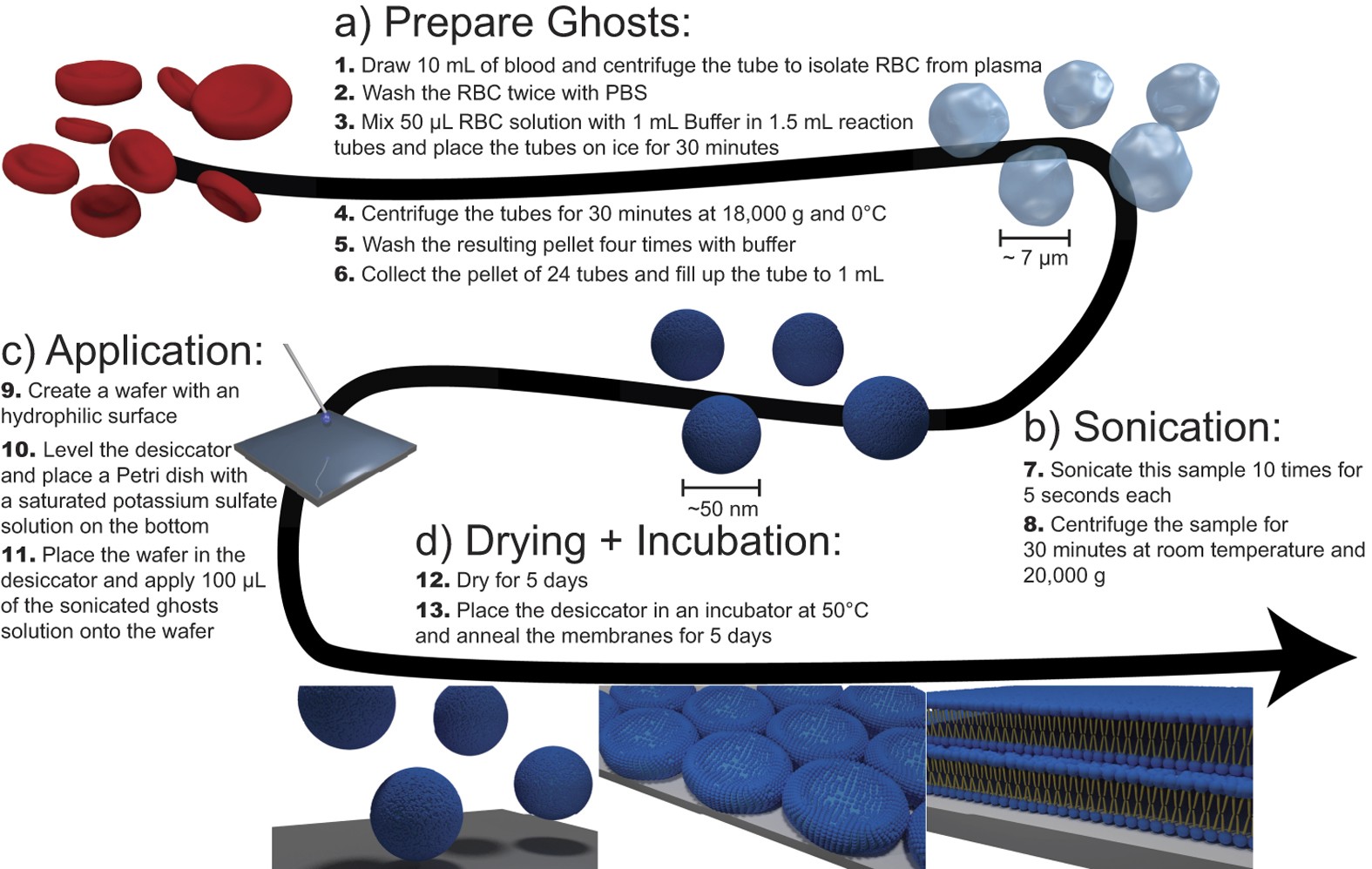
The Molecular Structure Of Human Red Blood Cell Membranes From Highly Oriented Solid Supported Multi Lamellar Membranes Scientific Reports



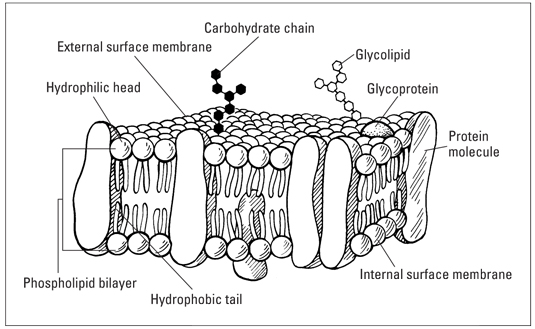
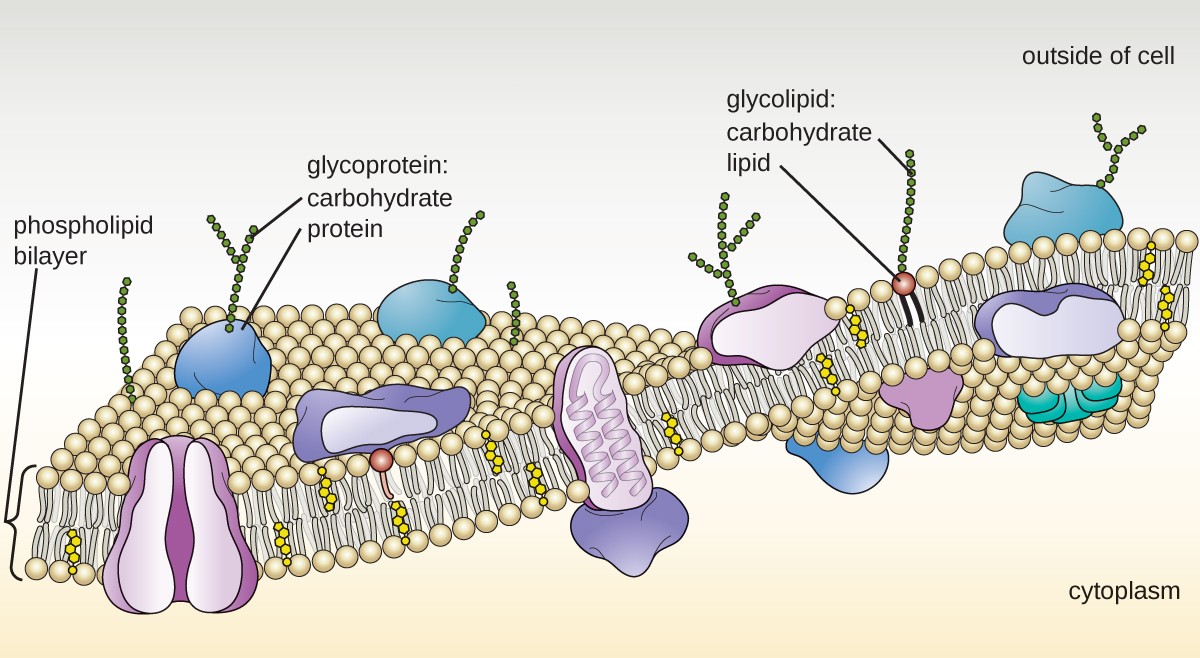

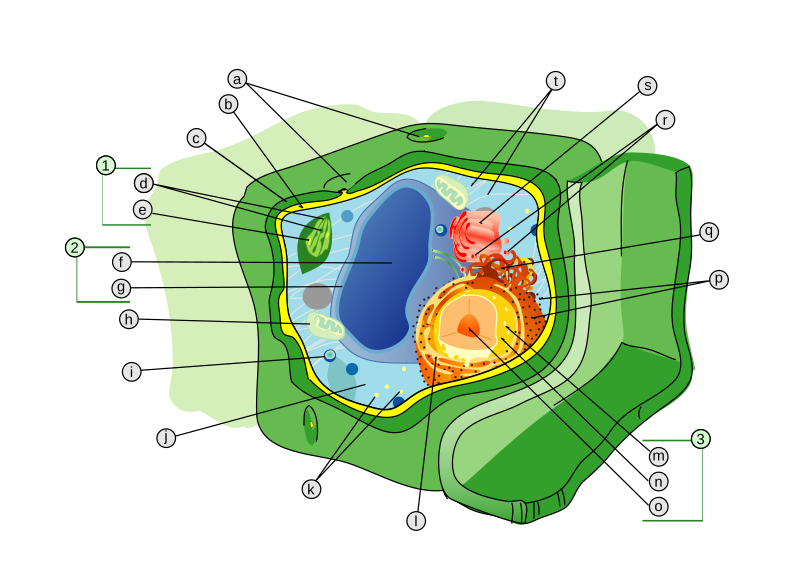
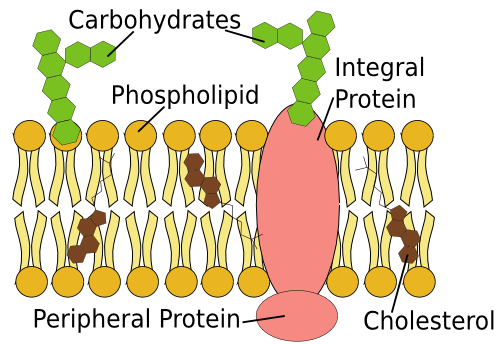


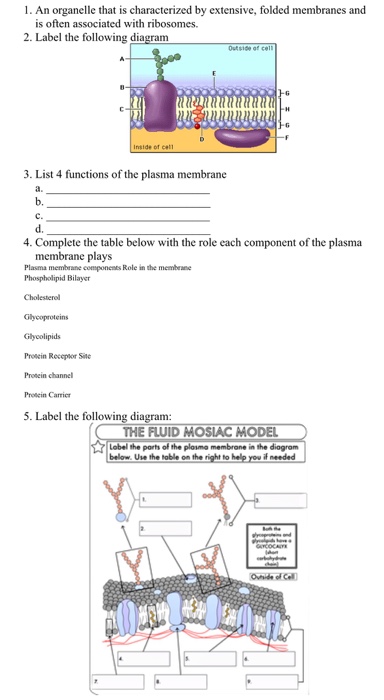
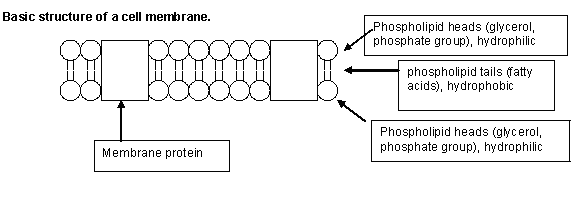



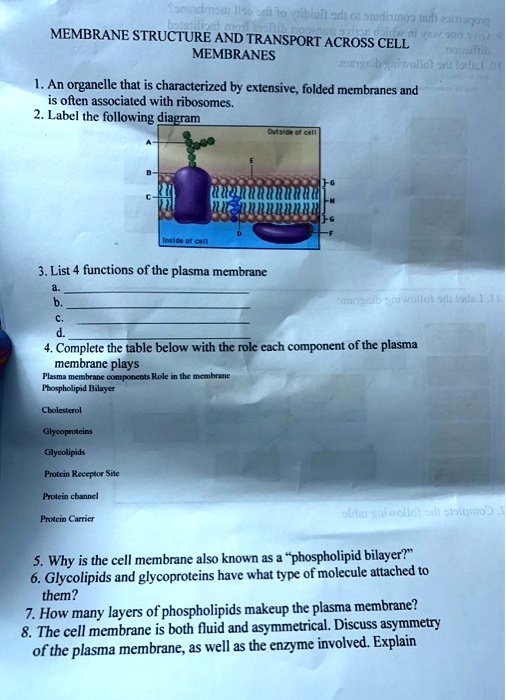

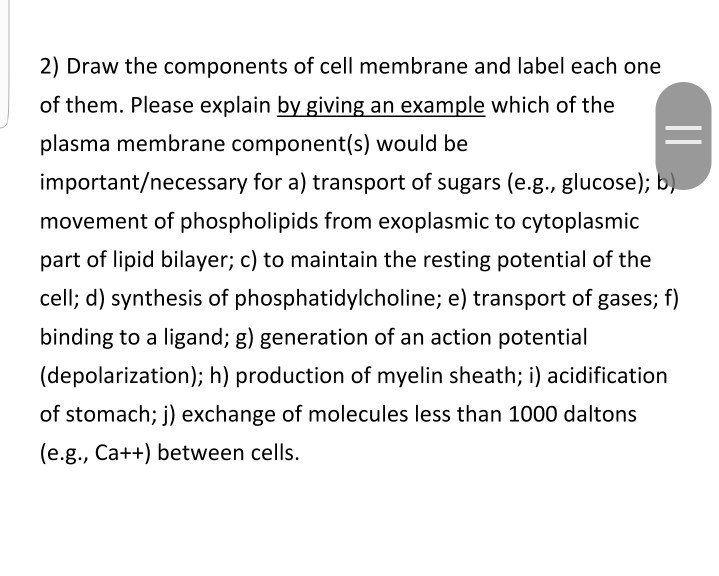
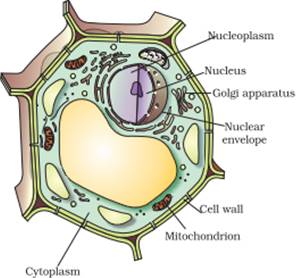
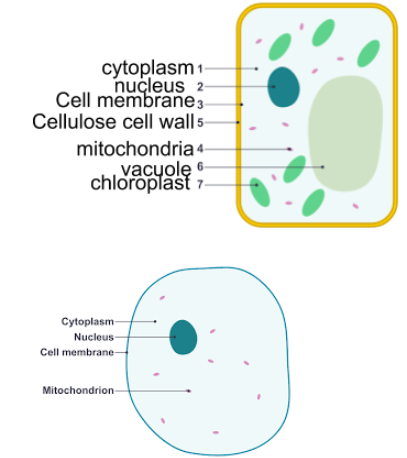
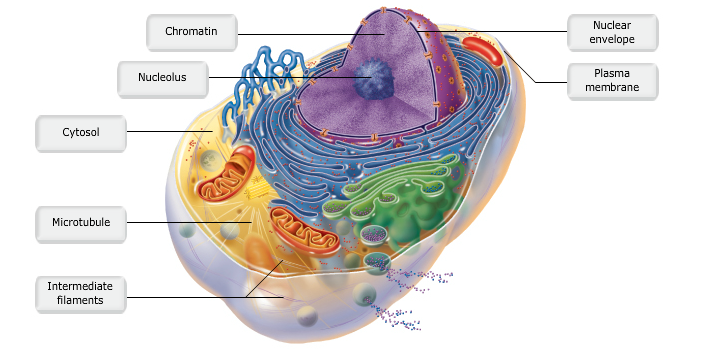


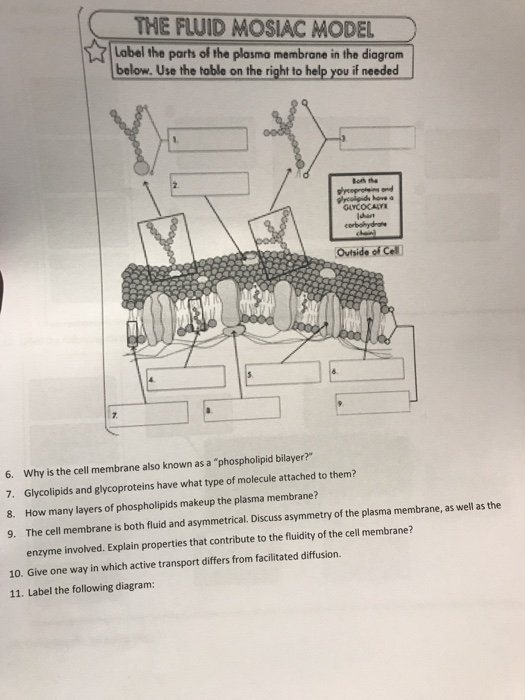



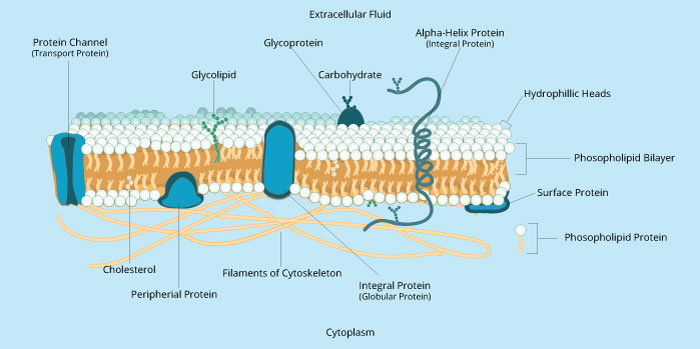

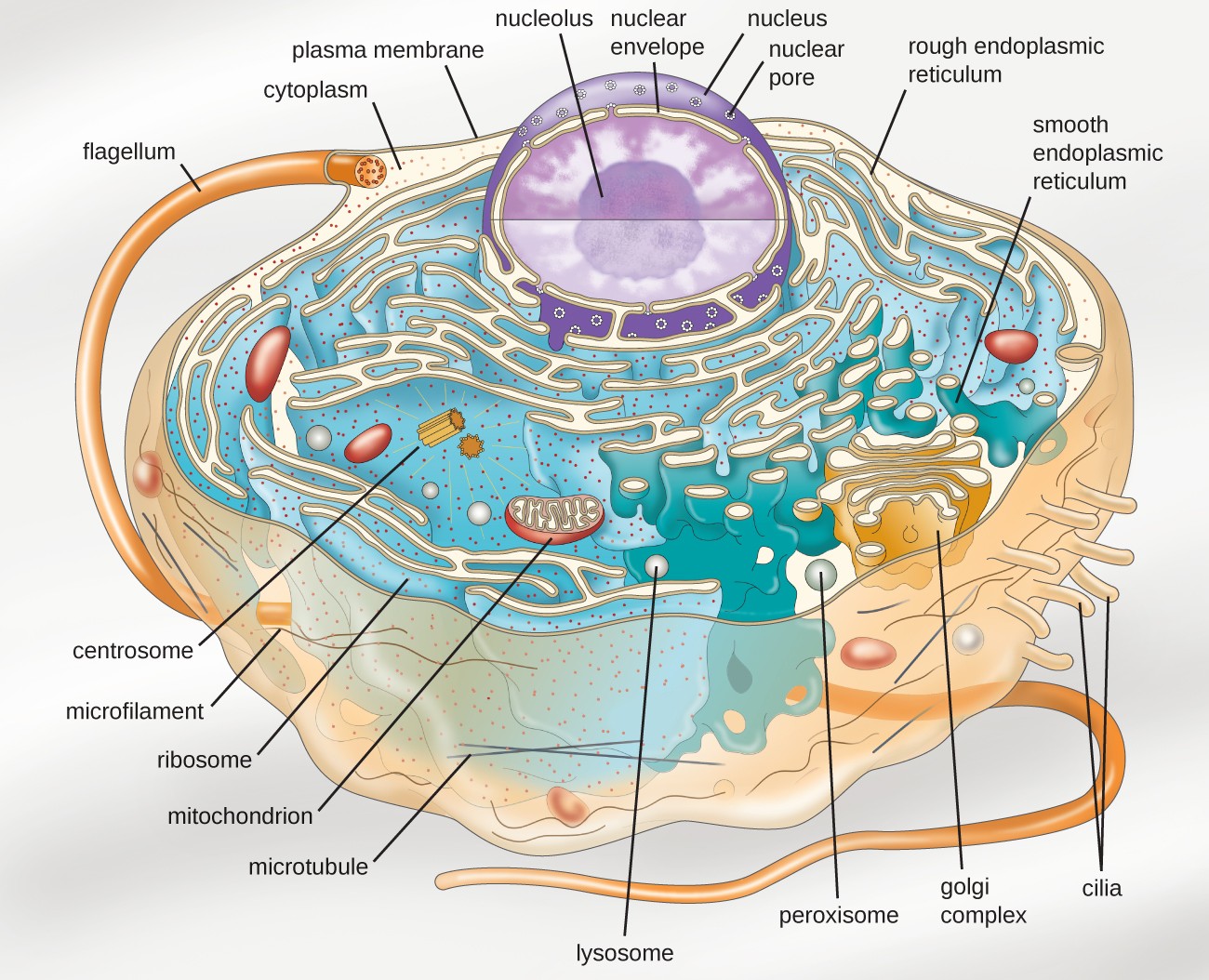

0 Response to "42 diagram the plasma membrane and label each component"
Post a Comment